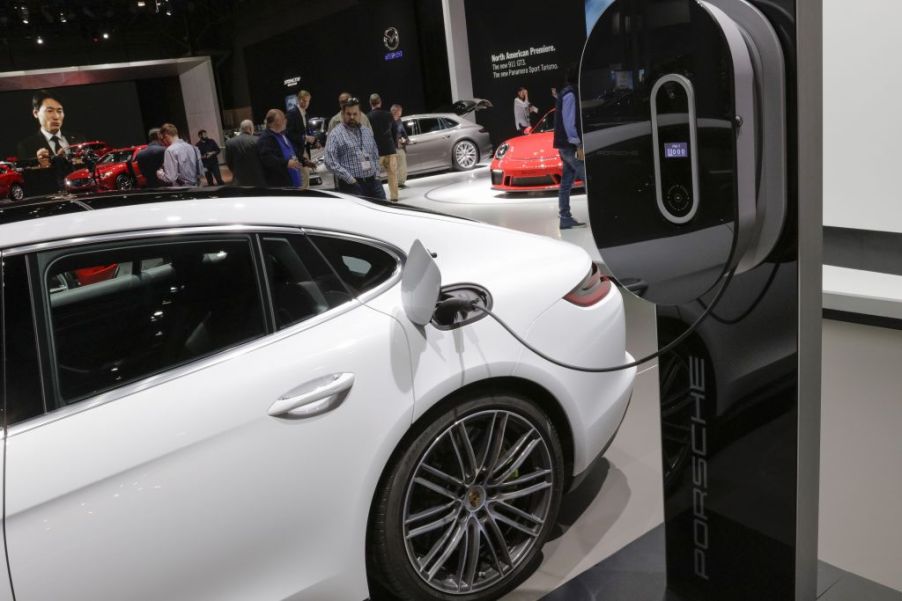
Will Electric Vehicles Be Enough to Save U.S. Auto Manufacturing?
One thing that thrills people about the auto industry is the advance of electric vehicles. With Tesla’s announcement of a new truck and competitors responding with their own EVs, Americans can’t get enough of the electric vehicle industry.
Recently, we’ve seen the U.S. auto industry decline. People simply aren’t buying cars like they used to. Plus, foreign manufacturers are putting down roots in the U.S. to cut down on shipping costs. Will the advent of electric vehicles be enough to bring back interest in American auto companies?
What’s causing the decline in U.S. auto manufacturing?
While research shows that American auto sales have decreased over the past few years, many factors are at play. Generationally, millennials are simply buying fewer cars than preceding generations.
Younger people see cars as less of a status symbol than their parents and grandparents did. Millennials want their cars to last as long as possible. They also tend to live in cities more than the suburbs, where they are able to take advantage of public transportation.
Additionally, more foreign manufacturers are setting up shop in the U.S. Automakers like Volvo, Toyota, Mazda, and BMW are all joining the ranks of foreign manufacturers opening plants in America. This cuts down on shipping costs, but it also adds competition.
Electric vehicles excite people
Car enthusiasts can’t wait to hear the next big announcement from Tesla CEO Elon Musk, and they like learning about what other automakers are doing to compete. In a time where car manufacturers need to up the ante, EVs are doing the bulk of the work to keep people’s interest and stay relevant.
Research also shows that there’s been a shift in what people want from their vehicles. Sedans no longer dominate car sales. Instead, people want SUVs and crossovers these days. Likewise, the electric vehicle market has been expanding to stay relevant and keep people interested.
Will electric vehicles be able to keep auto manufacturing jobs afloat?
Since the days of Henry Ford’s first dealership in Michigan, the auto industry has supplied the U.S. with millions of jobs. Many of those are thanks to the internal-combustion engine and the maintenance it needs to keep running.
If the majority of people switched to driving an electric vehicle, it’s possible that we’d lose out on a lot of those jobs. Electric vehicles don’t need as much routine maintenance like oil changes, gas, or transmission fixes.
While it’s possible that we may lose some jobs if electric vehicles become the norm, if more people buy cars again, it may all even out. Only time will tell and, as more car brands jump into the electric vehicle industry, we’ll begin to see truly how much long-term maintenance EVs will need.


